Abstract
The use of primes, contingent attention, and training sessions to assess a child's engagement and skill in six large motor activities was examined using a combination reversal and multiple-baseline design. Assessment was based on four levels: proximity to equipment, touching equipment, unskilled participation, and skilled participation. Before training, priming (suggestion to the child) was more effective than contingent attention for increasing the subject's engagement (but not skill) in five activities and for increasing skilled participation in one activity. Training of four activities in the natural environment effectively increased the subject's skill level in five activities. Thus, training appeared to generalize to one of these five activities in this setting and also to skillfully executed stair climbing in an adjoining setting. After training, primes and contingent attention were sufficient to maintain both the subject's skill level and engagement in all activities. Postchecks in the same setting the following semester with different teachers revealed only slight increases in participation, as compared to previous baselines, but all participation was at the skilled level. Social interaction, which was not experimentally manipulated, did not systematically vary in relation to changes in experimental conditions.
Keywords: primes, contingent teacher attention, general teacher attention, preschool children, motor development, training procedures, skill level
Full text
PDF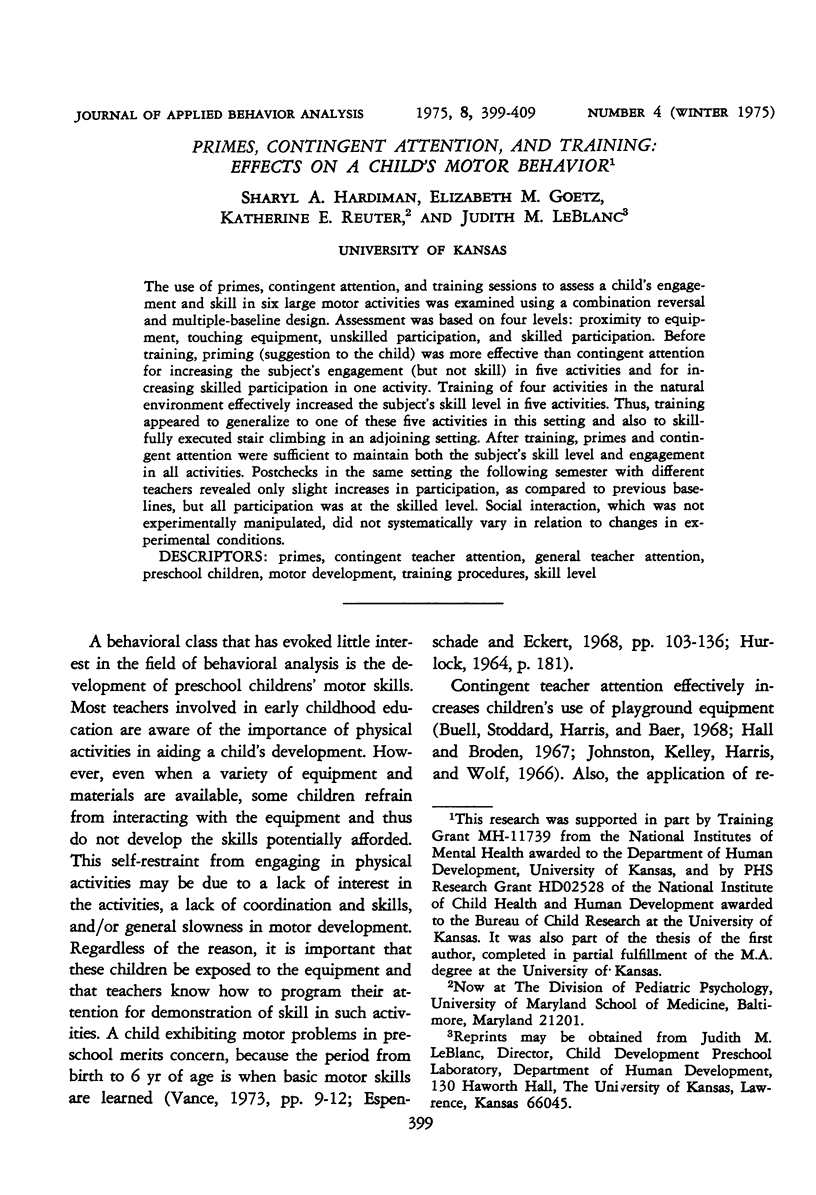
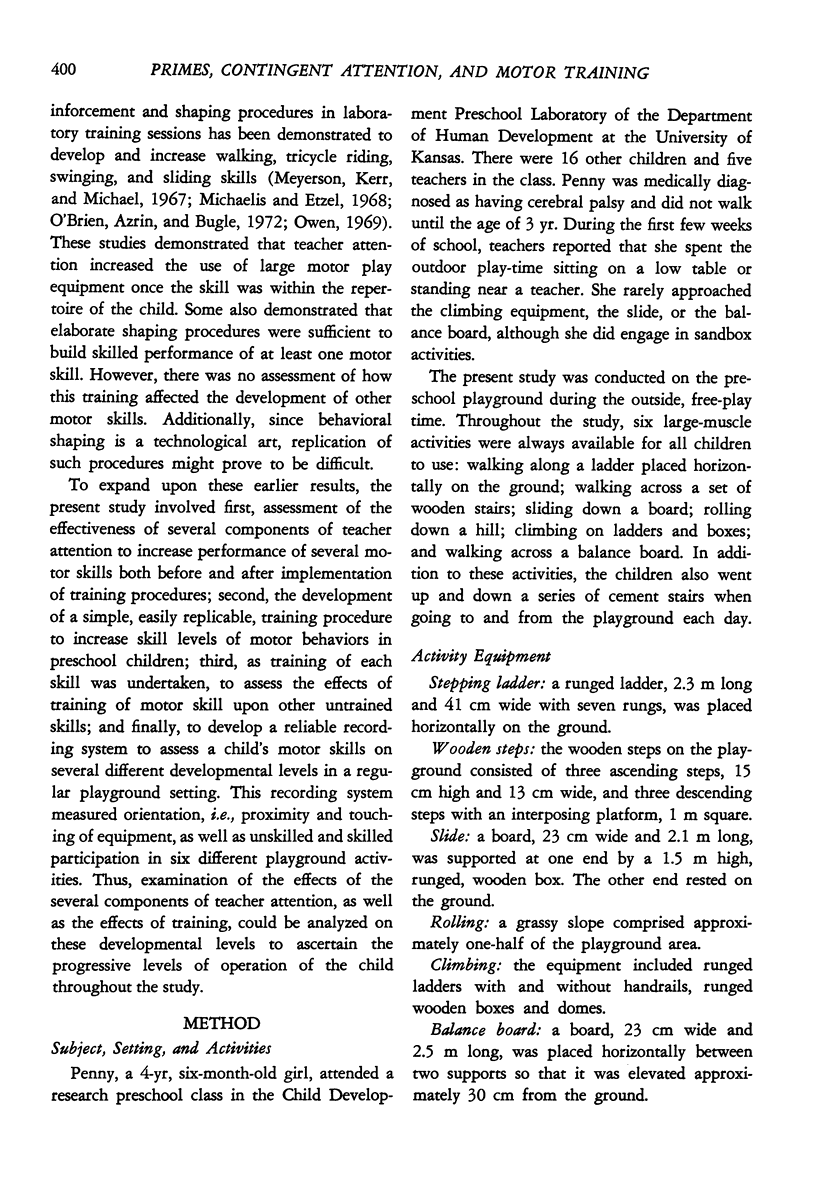
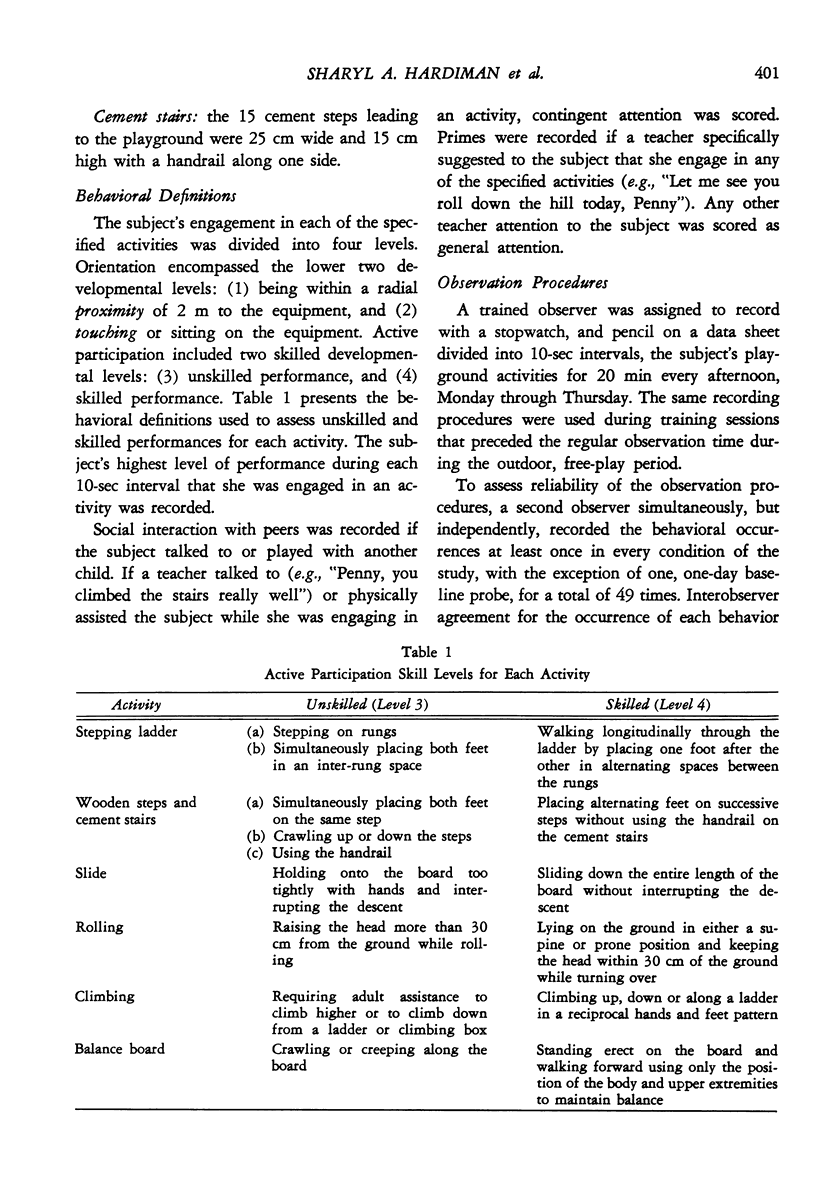
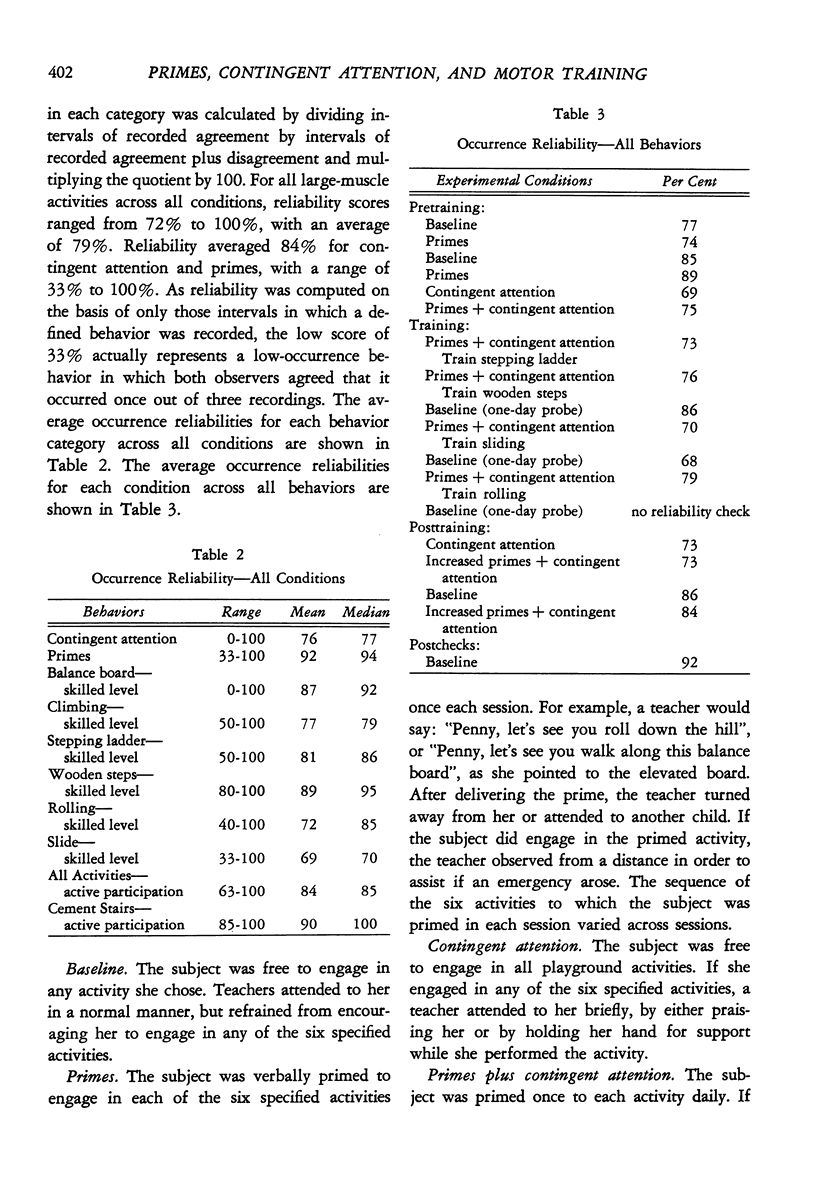
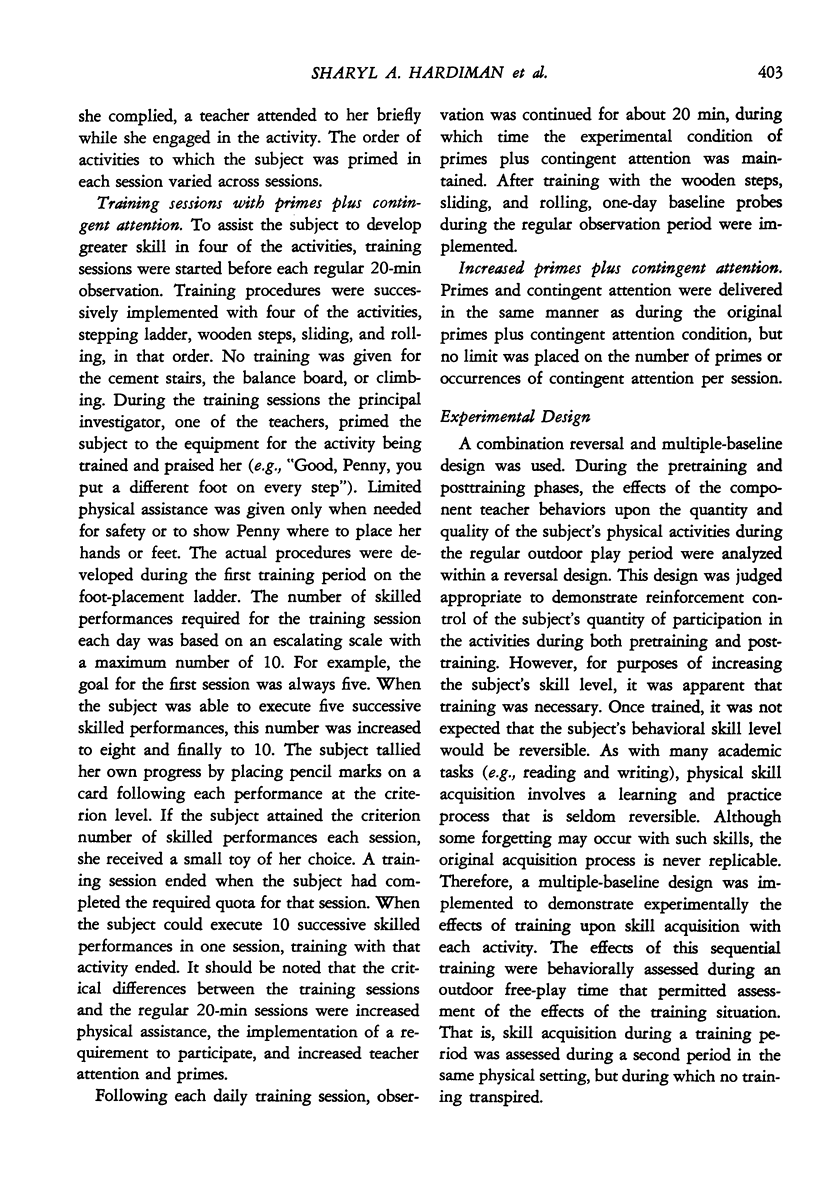
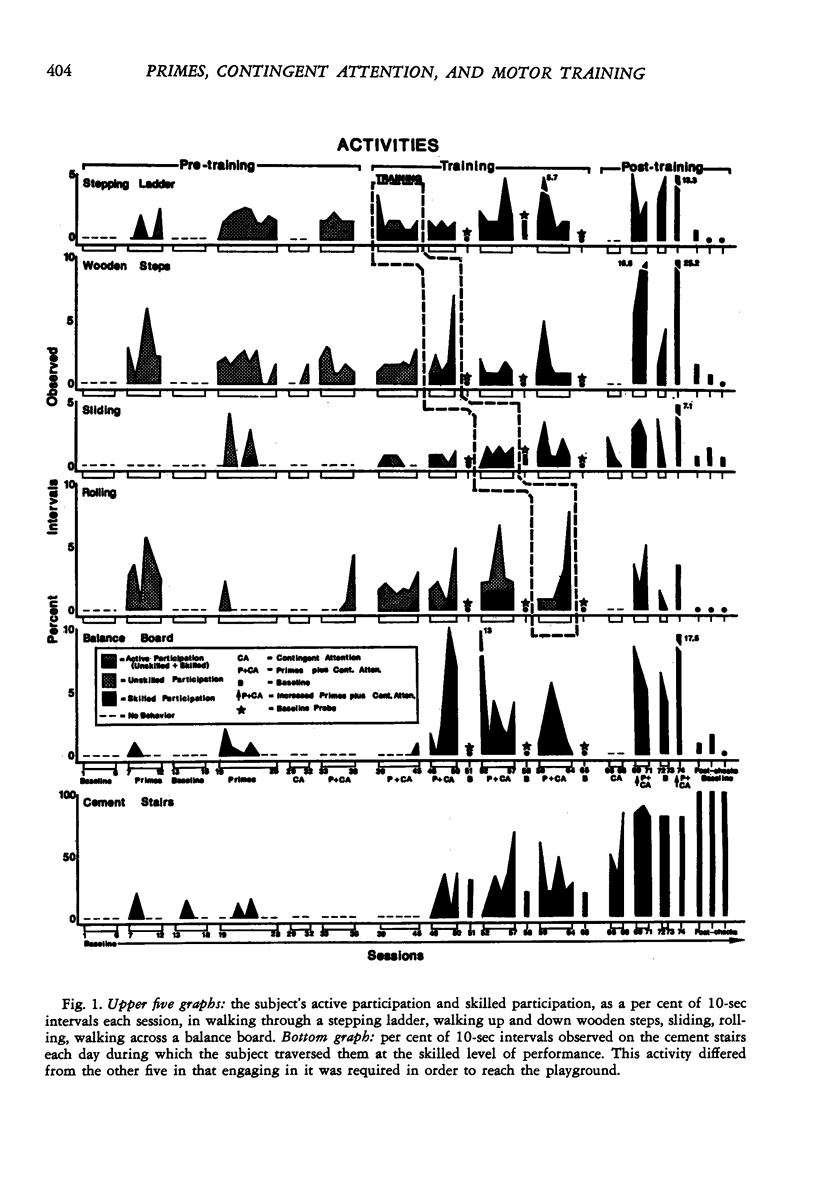
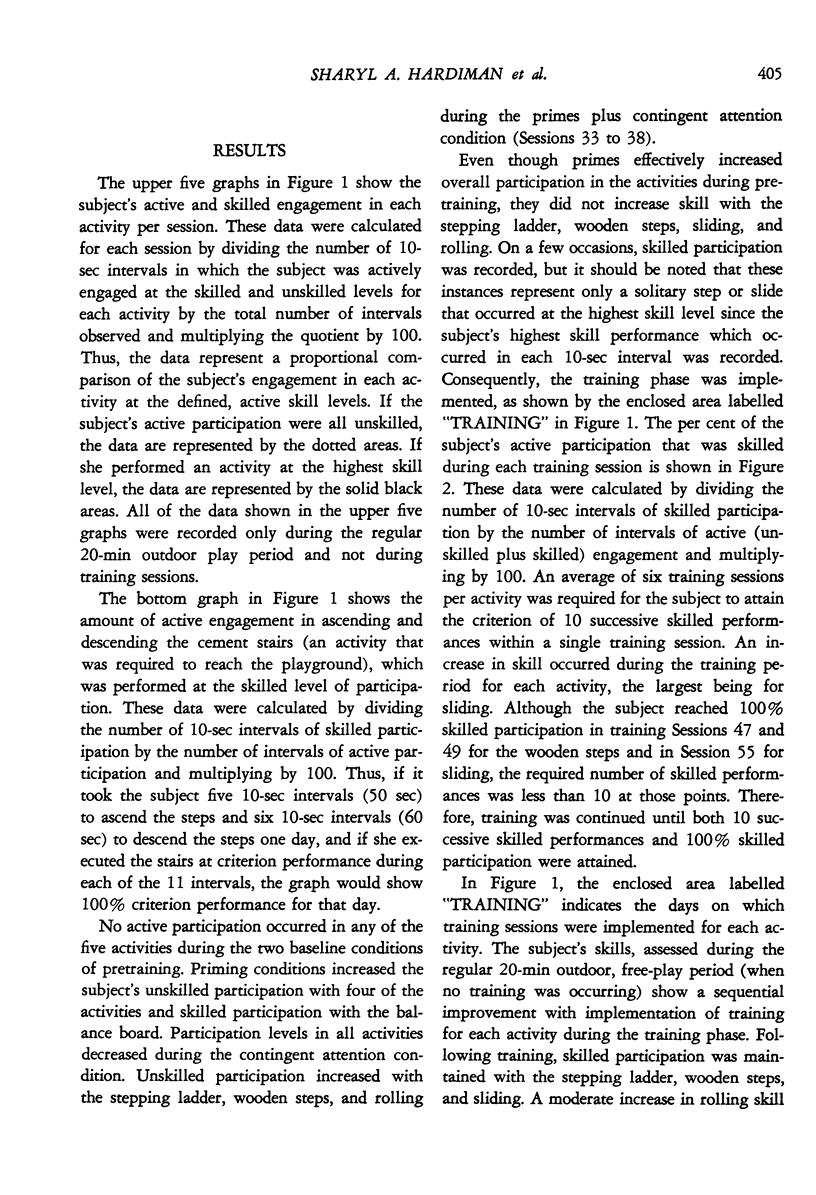
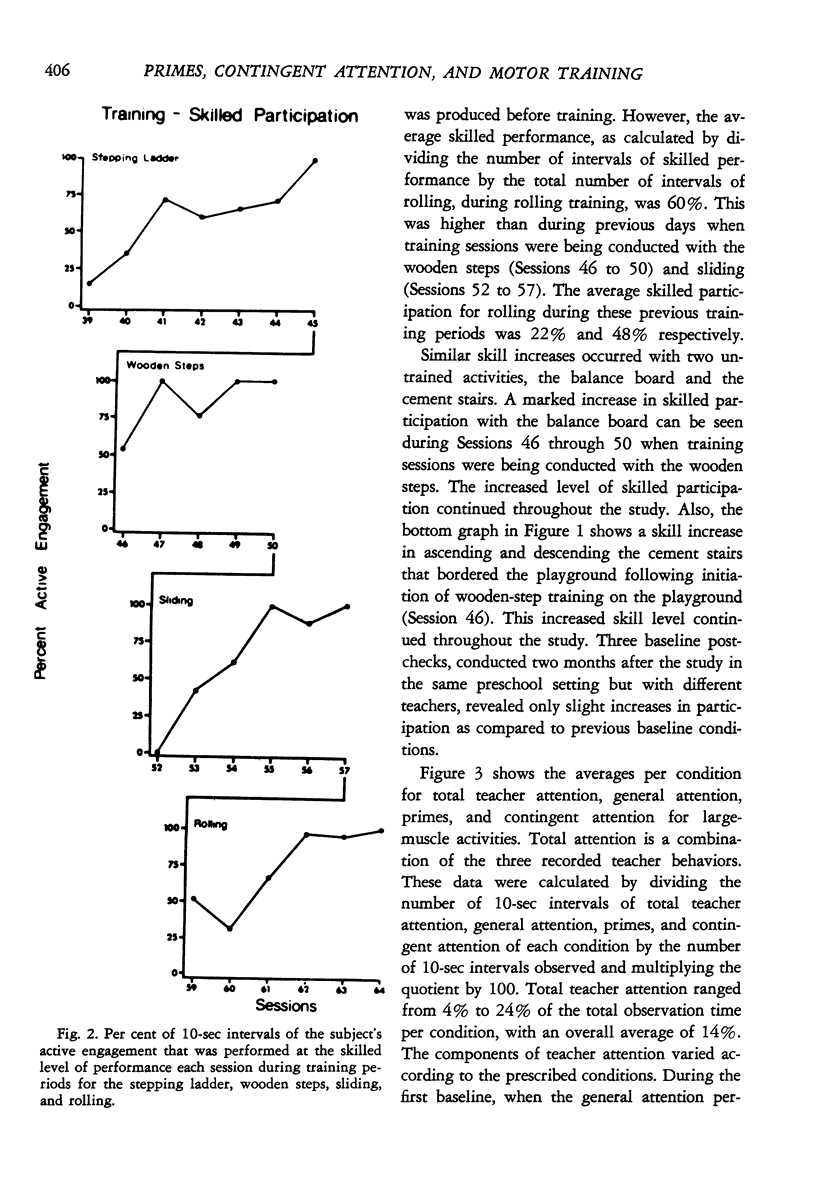
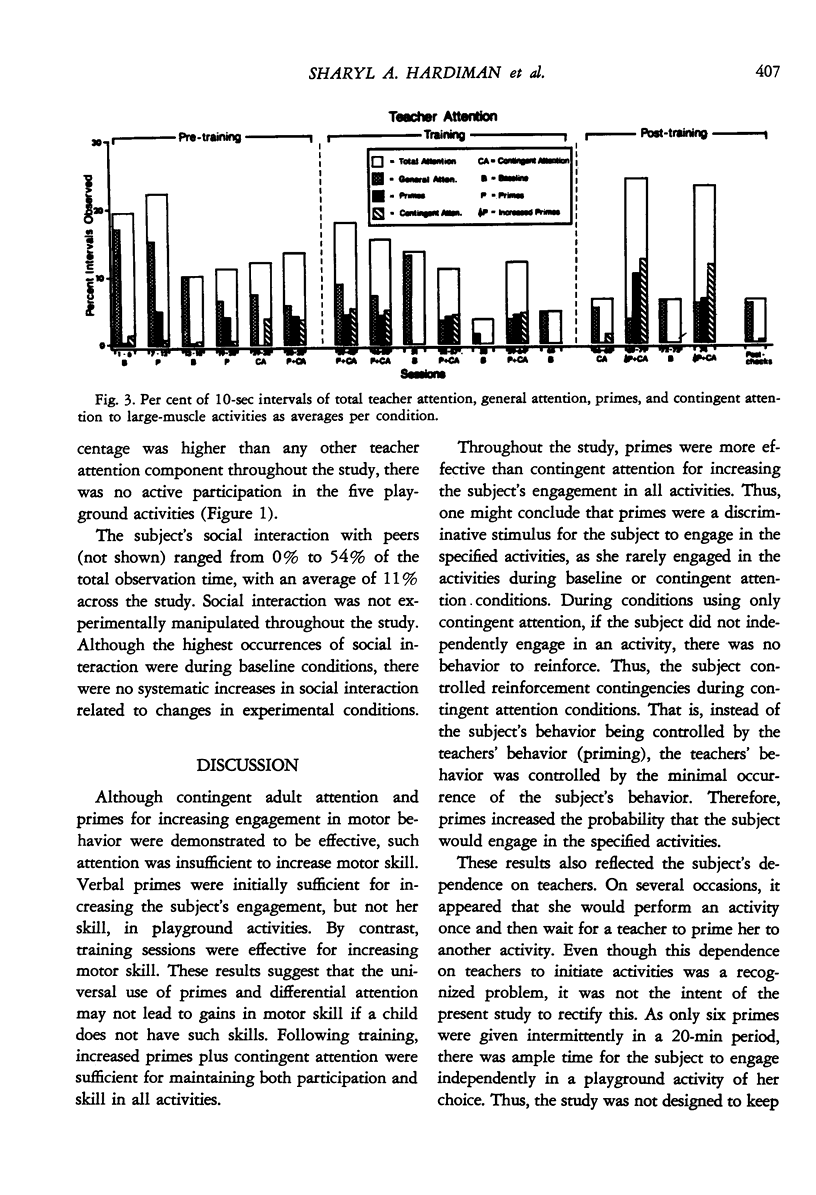
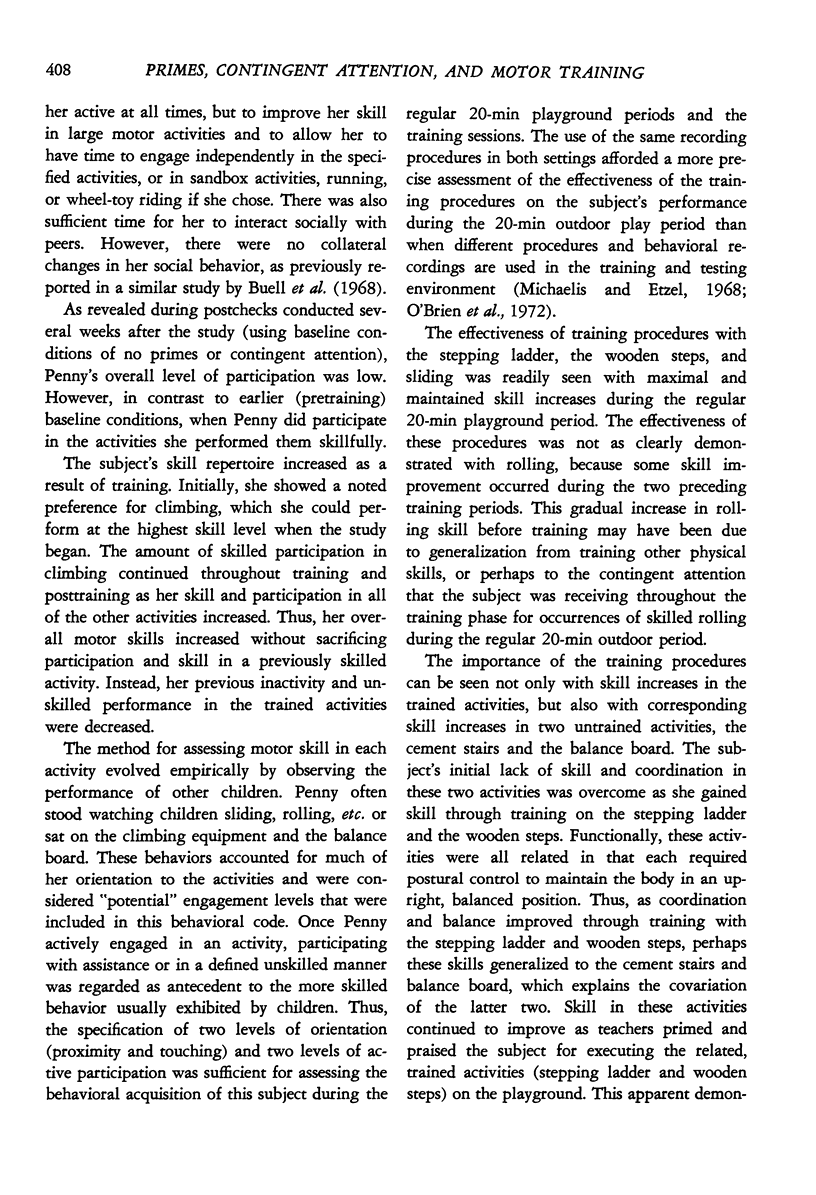
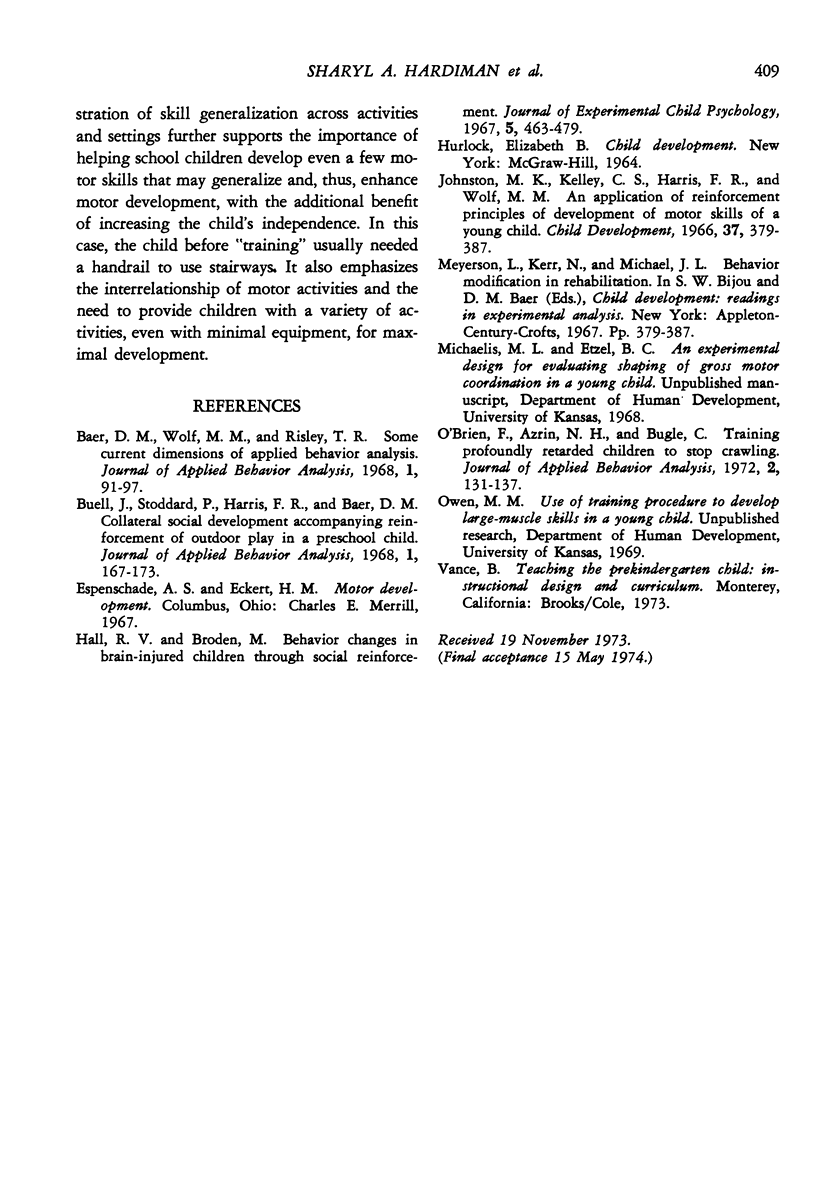
Selected References
These references are in PubMed. This may not be the complete list of references from this article.
- Baer D. M., Wolf M. M., Risley T. R. Some current dimensions of applied behavior analysis. J Appl Behav Anal. 1968 Spring;1(1):91–97. doi: 10.1901/jaba.1968.1-91. [DOI] [PMC free article] [PubMed] [Google Scholar]
- Buell J. Collateral social development accompanying reinforcement of outdoor play in a preschool child. J Appl Behav Anal. 1968 Summer;1(2):167–173. doi: 10.1901/jaba.1968.1-167. [DOI] [PMC free article] [PubMed] [Google Scholar]
- Hall R. V., Broden M. Behavior changes in brain-injured children through social reinforcement. J Exp Child Psychol. 1967 Dec;5(4):463–479. doi: 10.1016/0022-0965(67)90042-2. [DOI] [PubMed] [Google Scholar]
- Johnston M. K., Kelley C. S., Harris F. R., Wolf M. M. An application of reinforcement principles to development of motor skills of a young child. Child Dev. 1966 Jun;37(2):379–387. doi: 10.1111/j.1467-8624.1966.tb05394.x. [DOI] [PubMed] [Google Scholar]
- O'brien F., Azrin N. H., Bugle C. Training profoundly retarded children to stop crawling. J Appl Behav Anal. 1972 Summer;5(2):131–137. doi: 10.1901/jaba.1972.5-131. [DOI] [PMC free article] [PubMed] [Google Scholar]


